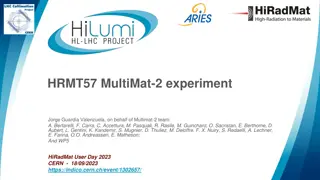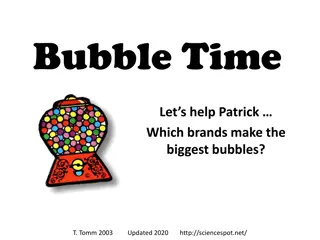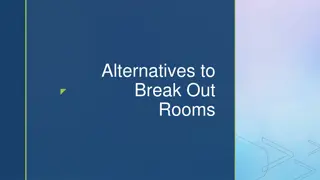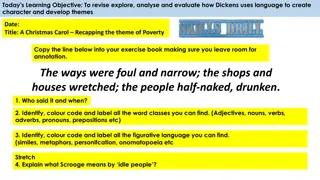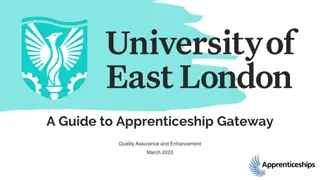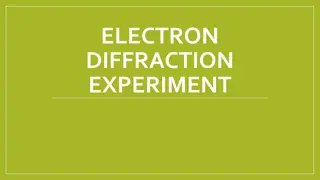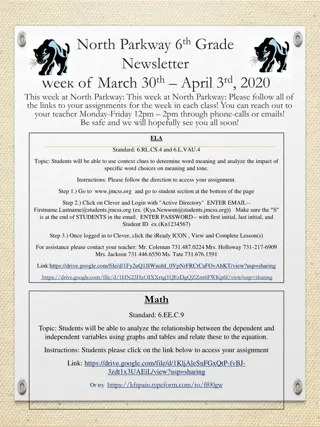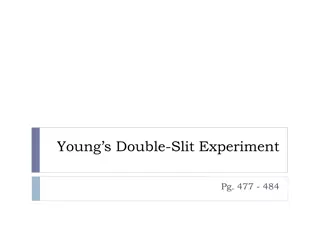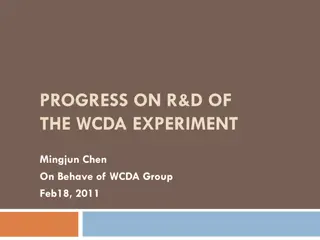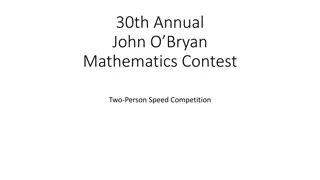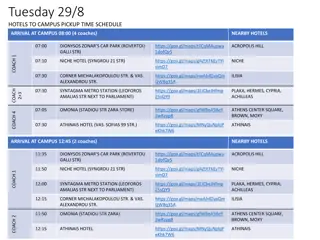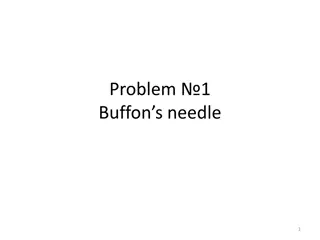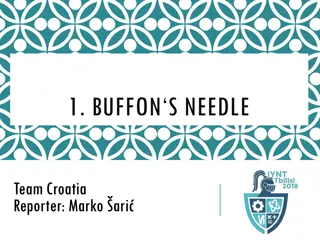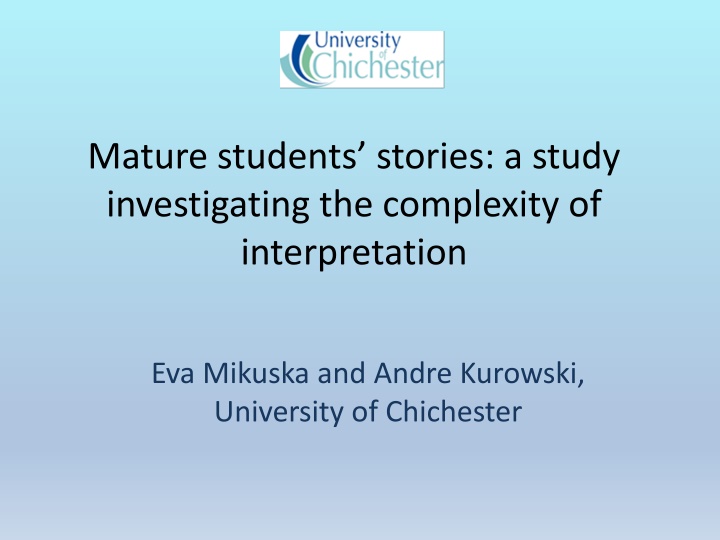
Impact of Admission Policies on Mature Students in Higher Education
Explore the complexity of interpretation in a study investigating the impact of admission policies on mature students applying to Higher Education. Discover the challenges faced by non-traditional students and the need for guidance in the application process. Learn about national policies aimed at widening participation in higher education and the decline in participation rates among mature students.
Download Presentation

Please find below an Image/Link to download the presentation.
The content on the website is provided AS IS for your information and personal use only. It may not be sold, licensed, or shared on other websites without obtaining consent from the author. If you encounter any issues during the download, it is possible that the publisher has removed the file from their server.
You are allowed to download the files provided on this website for personal or commercial use, subject to the condition that they are used lawfully. All files are the property of their respective owners.
The content on the website is provided AS IS for your information and personal use only. It may not be sold, licensed, or shared on other websites without obtaining consent from the author.
E N D
Presentation Transcript
Mature students stories: a study investigating the complexity of interpretation Eva Mikuska and Andre Kurowski, University of Chichester
Today we will: Explain the aims of the study To provide a critical understanding of the impacts of government and institutional admission policy on particular group of students in regards of applying and enrolling to HE. To find out if, through narrative enquiries, whether the application and admission policy best suits the needs of this group . Demonstrate the subjectivity of interpretation of the data. Context Methodology Findings/Conclusion
What we know the context Recent evidence (UCAS, 2013) shows that in terms of participation, students over 20 years old are under-represented in Higher Education. Leathwood and O'Connell (2003), state that non-traditional students require and seek more guidance in regards to the application process to HE. Attainment poor attainment in secondary school is more important in explaining lower HE participation rates amongst students from disadvantaged backgrounds than barriers arising at the point of entry into HE (Chowdry et al., 2010) All full time students requires to apply through UCAS.
Wider national policies The Higher Education Act 2004 enabled universities to set their own fee from 2006 and 2007 Prior to this - Robbins Report 1963; Dearing Report 1997; Browne Report 2010 Widening participation in higher education: creating opportunity, releasing potential, achieving excellence introduced by DfES, 2006b Higher Education White Paper Students at the Heart of the System (BIS, June 2011) - set out the vision for how the HE sector in England should become more diverse and responsive to the needs of students
BUT Only the best informed applicants and advisers are able to optimise UCAS applications and there is undesirable divide between those applicants who receive effective advice and those who do not (UCAS, 2011). I remain concerned about participation among students aged 20 and over, who are statistically more likely to come from under-represented groups. It has declined greatly in recent years and remains below what it was five years ago. (OFFA, December, 2013)
The tabloid Mature students feel the chill as fears rise over higher fees Critics claim steep rise in tuition fees is putting off potential undergraduates and checking their ambition Mature students are the first casualty of higher tuition fees Applications from older students are in decline as fewer people feel able to risk their future on a course that can cost thousands LSE's Professor Craig Calhoun and mature students: first or fail? This week, the London School of Economics gets a new director, but university applications from mature students in the north east have had a worrying drop Are universities doing enough to include mature students? Big fall in mature students comes as shock to universities Universities blame the economic crisis for an alarming 40% drop in older and part- time learners
The aim of this study was: To provide a critical understanding of the impacts of government and institutional admission policy on particular group of students in regards of applying and enrolling to HE. To find out if, through narrative enquiries, whether the application and admission policy best suits the needs of this group . Demonstrate the subjectivity of interpretation of the data.
Data collection Through text which was submitted electronically (e-mail) The task: Please, write down your experience about the application process to the Foundation Degree in Childhood Study in a reflective account format. We are particularly interested in which kind of emotion(s) you have experienced when you were trying to complete the UCAS application form. Please, do not hesitate to record anything you wish from the very beginning when you decided to study, to the end, when you actually got the student ID card. This task does not have a word limit and it will not be assessed. If you applied by completing the generic university application form, then you should reflect on this process. Thank you very for participating.
Participants Number of students asked Number of students replied Direct application form used UCAS form used For the purpose of this presentation analysed 34 31 19 15 10
ANDRE - analysis Considered themes Empathised with student circumstances Reflection of own experience of applying to university Discourse between applicant and Admissions Tutor Social class/ cultural background
Respondent Comments Emotion 1 Due to circumstances I just couldn t join university. I had never heard of UCAS before. unaware of how to complete the form .after the interview I felt reassured. .this has been the best decision of my life. Delayed ambition Confusion Relief Optimism 2 The admission process: I found quite complicated. The interview: I would have liked longer to talk about my experience . I was so excited, relieved and proud to find out I had got a place on the course. I am now enjoying the course Confusion Optimism Confidence 3 I was lucky to have a supportive tutor at the college . I found writing the personal statement quite intimidating Despite having a good experience on the course, I would be in favour of a more flexible application process. Need for support Threat Anxiety/ relief Doubt 4 I was terrified and scared that I am not going to meet the expectations of the university. Lack of initial self confidence 5 .UCAS. I don t even know what on earth this is! Being unconfident on computers put a big barrier in the way . I felt stupid and incompetent. Fear Lack of confidence
6 UCAS. I had never heard of that before. Then I met my classmates and was surprised to see more mature students. Panic Relief 7 I had left school with limited options due to a lack of motivation to study and a lack of parental support. Children asking questions about how mum, who was poorly qualified , could apply any pressure for them to fulfil their potential I set the wheels in motion tentatively researching bursary amounts and places of study. I realised that anxiety was an issue for me . I was so excited but deep down lacked confidence. The day of the interview came and the fear seeped out of my pores making me feel sick and fearful that I may let myself down. Completing the UCAS application after interview made it easier Rationale Family pressure Caution Apprehension Self esteem Doubtful Relief 8 I never managed to apply through UCAS and I never made any attempt. If I was not offered a place at interview, which was very positive, I would never have joined the course. Faith in interview process
9 UCAS .always a sign of unpleasant or uneasy experience. What does undergraduate mean? I am forty and starting university later in life can be very daunting and every single obstacle can affect my confidence, self-esteem and motivation causing stress. My first approach to my future academic experience (the entry interview) was crumbling and left to some online external judgement. Doubts Self-doubt Anxiety Lack of confidence in online application 10 I applied by completing the generic university application form, rather than UCAS . Not really sure what the pathway I was supposed to be applying for. I was not sure about .the bursary forms .were all part of the same application. The whole process had me very worried .outstanding Ofsted reports but now I was made to feel that somehow I was no longer considered good enough for my own job. It is with this low opinion of myself that I set off to look for university education, wondering if I was a fraud for even considering it. I cried, I was panicked. How was I to go to university if I could not understand all of the boxes I had to fill in for the application? It was in the second semester of the final year that I finally felt I was a student and I had a right to be there. Doubt Anxiety Self confidence Self esteem Anxiety Relief Positive self-regard
Andre - analysis Recurring themes: Self-doubt Anxiety Need for support of personal interaction Lack of confidence Threats to self-esteem
Eva analysis Policy discourses Divided the narratives into NON UCAS and UCAS Proposed changes in local policy application process
Eva analysis After the interview I remember clearly about my first ever interview in April 2012 by the Lady that guide me on the requirement needed for the foundation degree, and the topics and subjects expected to study. After the interview I was excited but deep down lacked confidence. I did not understand why I would be deemed capable of completing an academic course, when previously I had failed to comprehend the importance of academic qualifications when making life choices. UCAS The forms were so badly designed. There was only enough space for tiny writing to go in the boxes. Even with the help I received on the phone the form was not filled in correctly and it was returned asking me to complete it correctly without telling me which bit I had got wrong. I applied to university via UCAS, I was lucky to have had a supportive tutor at college who answered many questions and queries as well serving as one of my references. I also worked (and still worked) in a nursery setting where there were two other staff members who had prior experience of UCAS and were very helpful. Overall I had a reasonably good experience of UCAS and found it easy to use, however I have fairly good ICT skills and had the support of others and I think this helped. The whole process had me very worried. I am a nursery manager with two Outstanding Ofsted results. The nursery since it opened received the best results, however now I was made to feel that somehow I was no longer considered good enough for my own job. [because of the complexity of application form] My memories about UCAS application form: to me this has always been a sign of unpleasant or uneasy experience. I had to apply on line filling numerous questions and I remember that some of the words were not clear to me Non UCAS sobbed through the whole thing. Luckily XY was very understanding. She seemed to get that I felt that I was in the wrong place and out of my depth. How was I supposed to go to University if I could not understand all the boxes I had to fill in for the application? I had been out of education for 17 years and I am usually the person doing the interviewing due to the role I have in the nursery!! I was terrified and scared that I am not going to meet the expectations of the university. I never applied through UCAS. I don t even know what an earth is this!!! I am a mature student with very little knowledge of how to use ICT. I never managed to apply through UCAS and I never made an Before the interview Reason for stud. Now I feel it was a best advice from my manager. I love learning. I struggled with the computers and with the library especially with the electronic resources but no regret. Various Reflection I noticed that there was a college in G, cheaper than other options and with hours that may suit me. I decided against the college as an option as I wanted to attend a University. Perhaps deep down I knew that a college degree was not what I wanted, I wanted to go to University as my friends had. I went to the interview after submitting my application and [after the interview] I was so excited, relieved and proud to find out I had got a place on this fabulous course. But after the interview I felt re-assured that I can do it! It was a very good feeling. I completed a form straight away, and I was very happy that I don t have to do the UCAS business. When I phoned XY I was told that I need to apply through UCAS. I never heard that before. I panicked. But then XY told me to come for a chat which I did. She gave me a form to complete and told me that it is going to be OK. I was worried and felt stupid and wanted to give up straight away It was a parent who persuaded me to go back to complete my studies when I was told about the graduate incentive. If this had not been there I would maybe not have gone back to my studies. It was in the second semester of the final year of my foundation degree that I finally felt I was a student and I had a right to be there. With being a mother, I found that working and going to university very tiring.
Eva analysis Themes Lack of confidence and knowledge how to complete the application form Other commitments (work and family) Concern about age
Conclusion Despite both having the same aim to support mature students, our reflection on the study shows the complexity of the interpretation of narratives due to: our (researchers) cultural capital, different perceptions about hierarchy between people and policy BUT not about our gender and role. Alvesson and Deetz (2000) argue that no research can be free from the taint of the researchers own knowledge (p.113) and that the data is affected by the construction of the researcher.
Bibliography Alvesson, M. and Deetz, S. (2000) Doing Critical Management Research. London: Sage. Bourdieu, P. (1986) The forms of capital. In J. Richardson (Ed.) Handbook of Theory and Research for the Sociology of Education, New York: Greenwood. http://www.marxists.org/reference/subject/philosophy/works/fr/bourdieu-forms-capital.htm [Accessed 14th April 2014] pp. 241-258. [online] Available at: Chowdry, H., Crawford, C., Dearden, L., Goodman, A., Vignoles, A. (2010) Widening Participation in Higher Education: Analysing Using Linked Administrative data. London: Institute for Fiscal Study Department for Education and Skills (DfES) (2006). Widening participation in higher education: creating opportunity, releasing potential, achieving excellence. London: HMSO. Department for Education and Skills (DfES) (2007). Aiming high for young people: a ten year strategy for positive activities. London: HMSO. HEFCE (2012). Widening participation. [online] Available at: http://www.hefce.ac.uk/whatwedo/wp/ [Accessed 2nd January 2014]. Leathwood, C. and O Connel, P. 2003. It s a struggle : the construction of the newstudent in higher education. Journal of Education Policy, 18(6), pp.597 615. Office for Fair Access 2013. UCAS 2013 end of cycle report: good progress on access but gaps still too wide. [online] Available at: http://www.offa.org.uk/uncategorized/ucas-2013-end-of-cycle-report-good-progress-on-access-but-gaps-still-too-wide-says- offa/#sthash.1hZvQ10i.dpuf [Accessed 8th April 2014]. Universities and Colleges Admission Service (UCAS). 2013. Student number controls: consultation on arrangements for 2014 15 onwards. [online] Available at: http://www.ucas.com/sites/default/files/ucas-response-to-the-hefce-student-number-controls- consultation-on-arrangements-for-2014-15-onwards.pdf[Accessed 22nd April 2014].
Contact Details Eva Mikuska Andre Kurowski University of Chichester, College Lane, Chichester, West Sussex, PO19 6PE. University of Chichester, College Lane, Chichester, West Sussex, PO19 6PE. Tel: 01243 816336 Email: e.mikuska@chi.ac.uk Tel: 01243 813476 Email: a.kurowski@chi.ac.uk http://www.chi.ac.uk/department-early-years-and- childhood-studies/undergraduate/foundation- degree-early-childhood http://www.chi.ac.uk/staff/andre-kurowski Friday, 04 April 2025 20


